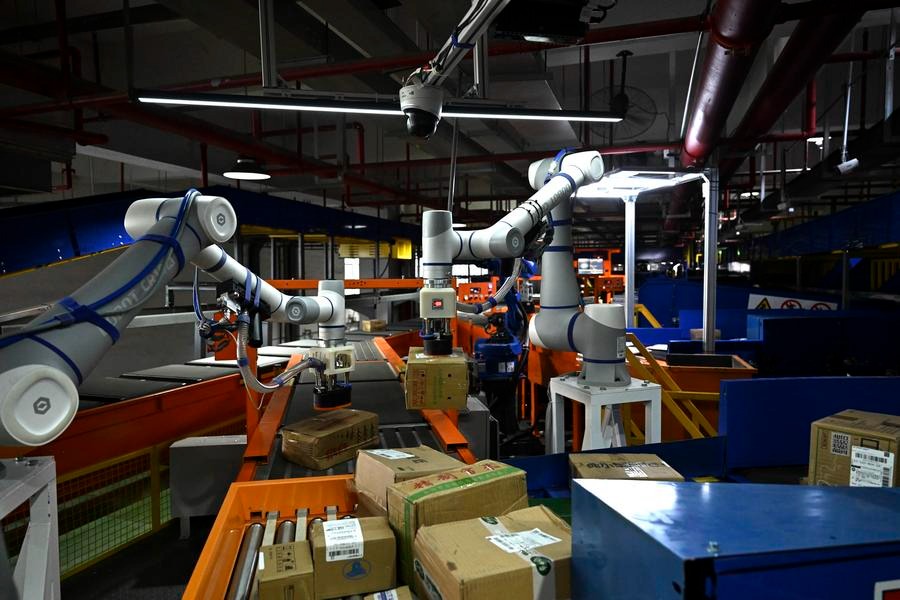Overprotection may cause anti-mainland sentiment

Hong Kong people pride themselves on being open and cosmopolitan. However, changes in government policy in recent years and popular sentiments - such as the "Hong Kong residents only" housing scheme, shelving of new multi-entry permits to more mainlanders, protests against parallel trading and cross-border shopping activities and calls for Hong Kong's independence from China - all point toward a more walled-off, protective attitude.
Pundits usually see this change of attitude either as natural defensive responses to a slowing economy and stiffer economic competition and political threats from the mainland, or simply complacency among some Hong Kong people who are too fixated on their current way of life to seize more opportunities to advance their beloved city.
These explanations may well be valid but we can also benefit from the perspective of evolutionary psychology, where exciting new research shows that risk of parasitic infection predicts lower openness across individuals and societies.

This makes intuitive sense. Before modern sanitation and medicine, the most important causes of human disease, death, and infertility were parasites - viruses, bacteria, protozoa and worms. In response, vertebrate animals have evolved a system of biochemical defenses, which is called the adaptive immune system.
Effective as our immune system is, it is highly localized. People from other kin groups, clans, tribes, ethnic groups or races may host other varieties of parasites that our immune system has not encountered before and therefore cannot protect us from.
The effect of this thesis is well illustrated in Jared Diamond's masterpiece Guns, Germs, and Steel: The Fates of Human Societies.
According to Diamond, Eurasia's dense populations, high levels of trade, and living in close proximity to livestock resulted in widespread transmission of diseases, including from animals to humans. Smallpox, measles and influenza were the result of close proximity between dense populations of animals and humans. Natural selection forced Eurasians to develop immunity to a wide range of pathogens. When Europeans made contact with the Americas, European diseases (to which Native Americans had no immunity) ravaged the indigenous American population, rather than the other way around.
Any interaction with outsiders brings a high risk of acquiring a new kind of parasite that may be especially hard for one's locally adapted immune system to fight off. When the environment is favorable to parasite growth, to a point that the potential harm outweighs the benefits of interactions with outsiders - trading opportunities, knowledge, etc - inhabitants will benefit from becoming more xenophobic and ethnocentric.
This relationship between parasite prevalence and openness is confirmed by research conducted by evolutionary psychologists. They find not only correlation between openness and actual parasite prevalence, but also correlation between openness and "perceived vulnerability to disease".
An individual's self-rated susceptibility to catching colds, infections and communicable diseases does predict that individual's xenophobia. Also, looking at photographs of parasites and disease symptoms has been shown to make people more xenophobic, at least temporarily.
These scientific discoveries got me thinking about whether or not our heightened collective perceived vulnerability to disease ever since the avian influenza A (H5N1) and severe acute respiratory syndrome (SARS) outbreaks has contributed to the increasing level of anti-mainland sentiment.
The first outbreak of avian influenza A (H5N1) virus in humans occurred in Hong Kong in 1997. Infection was confirmed in 18 individuals, six of whom died. Two decades later, it remains a psychological trauma in our collective consciousness.
The use of facemask is ritualized, especially among the obsessive-compulsive overprotective parents. Not coincidentally, the facemask is most prevalent in Japan, another culture that is notorious for its ethnocentricity. Elevators still have signs inside them that say "sterilized every two hours".
Perhaps also not coincidentally, those born two decades ago are also the most xenophobic and ethnocentric.
If perceived vulnerability to disease does make us more xenophobic and ethnocentric, as evolutionary psychology research suggests, the issue of anti-mainland sentiment has to be tackled using a different approach. As a society, we first have to stop confusing obsessive-compulsive disorder and overprotection with civilization.
Perhaps our children deserve a chance to see live chickens, so that they have a real sense where chicken wings came from and not only rely from books. Live chickens are really not that dangerous, nor are the mainlanders.
(HK Edition 04/19/2017 page7)
Today's Top News
- Envoy: Japan not qualified to bid for UN seat
- Deforestation is climate action's blind spot
- Japan unqualified for UN Security Council: Chinese envoy
- China, Germany reach outcomes after discussions
- Chinese cities dominate global science hub rankings
- Japan's tourism battered as Chinese travelers cancel trips






























